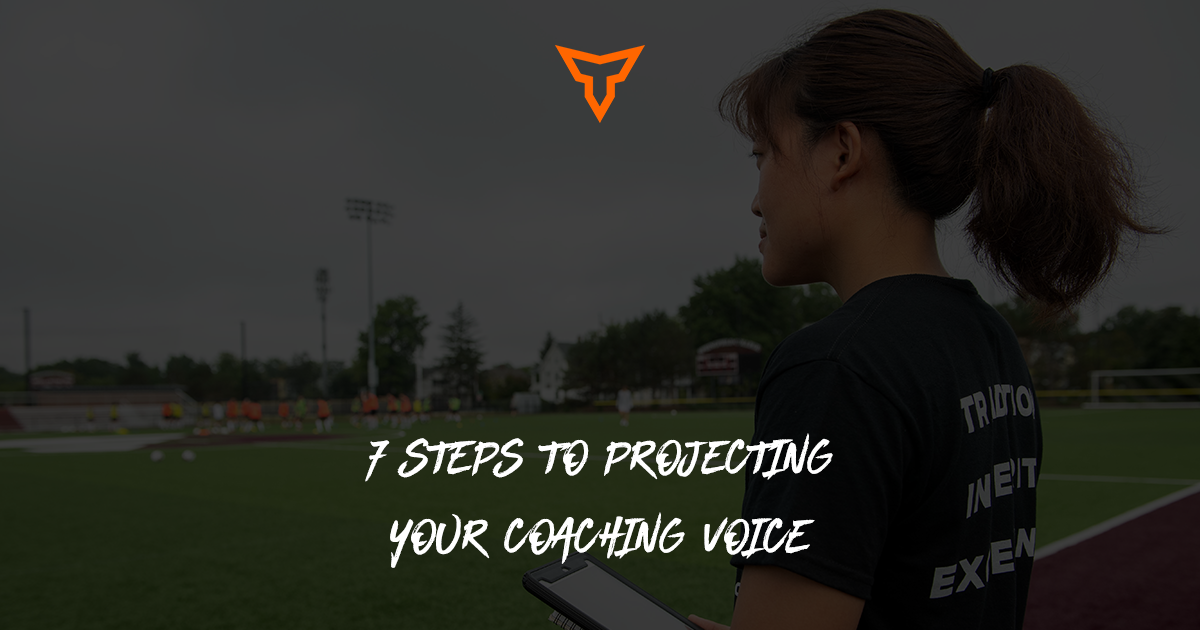Mid-Semester Reminder: Coaches Need Self-Care Too
It’s 10:00pm on a Thursday night. You have just finished putting in the GPS data from the afternoons practice and set all the units to charge. You look into the weight room and realize it’s not set up for the morning lift. Another 45 minutes later and the weight room is set up for the morning and you finally get to go home. A 20-minute drive later and you’re finally home. You think about eating something, but you’re so tired and exhausted you got to bed. It’s almost 11:30pm by now and you have to be up at 4:00am to be there for the morning lift.
If this sounds familiar, you know how much this can wear on you after a while. This life is common across athletics programs across the country. From high school to pro sports, and some private facilities, the grind of strength and conditioning coaching is something that is well known. The unfortunate part of this is we often see this as ‘part of the job’ or ‘just how things are’, and we are dedicated to our brand so much we don’t realize how much of a toll it takes on us. A recent 2022 study evaluated burnout in fitness professionals to include S&C coaches and personal trainers finding 99.3% of S&C coaches reporting burnout of some kind (Snarr & Beasley, 2022, p. e34). From their study, burnout was assessed by “mental toughness, hours per week, job satisfaction, and intentions to quit” (Snarr & Beasley, 2022, p. e34), and further subdivided by personal burnout, work-related burnout, and client-related burnout.
Common Causes of Burnout
Strength and conditioning is a service industry. Most successful coaches put their athletes first, sometimes at the cost of a social or family life. Although there is a lot to say about ‘living for the brand,’ it is dangerous when that brand is a coach’s entire life. So, what happens when the coach is not in a mentally healthy state, and they are trying to help young athletes throughout their careers? As servant leaders, coaches take on a lot of problems from their athletes. This can have a significant mental impact on the coach if they are constantly bombarded by stress and anxiety from their athletes. This can cause a coach to wonder if what they are doing is worthwhile or making a difference, which can often lead to burnout.
As mentioned, the picture painted in the introduction of this article is very common across strength and conditioning. Strength and conditioning coaches are often viewed as ‘grinders’ running on little sleep and little food but a lot of caffeine. When you are a young graduate assistant or brand new to the field, you may be able to sustain this for a bit, but ask any seasoned coach, it is not a long-term strategy. Most coaches have more than one team assigned to them, often with opposing schedules, making for early mornings and late nights, creating a poor sleep schedule for the coach. As coaches, we often talk to our athletes about the importance of sleep for their recovery and performance, so why do we struggle to follow our own advice? Research into sleep deprivation universally shows a decline in cognitive function, behavioral changes, increases in heart rate and blood pressure, and increases in cortisol, all depending on the severity and duration of the sleep deprivation. Extended poor sleep quality can often lead to burnout.
Other common causes of burnout include the lower pay reported across the industry. With the amount of time and effort coaches put into their teams, athletes, and brands, the pay is often too low to even cover basic necessities such as rent and gas. Additionally, conflicting beliefs, visions, or methods may lead to burnout if coaches have to constantly butt heads with their sport coach, other S&C coaches, administrators, advisors, and parents. Finally, the culture of the team or organization may require too much of their staff leading to a lot of the previously mentioned causes of burnout. High standards are what drive high performance and should be encouraged to push everyone to their best, however, they need to be realistic and allow for open communication among staff so everyone can perform at their best.
Solutions for Recovering from Burnout
Recovering from burnout is not necessarily difficult, however it does require some time. The first step is communicating with a trusted superior about what you’re feeling and why. They may simply not even be aware of your issues and may work to address them immediately. If they cannot be addressed within the organization here are some recommendations:
Work Break
Taking a break from work is one of the common recommendations found for recovering from burnout. This can be a full vacation, traveling somewhere and completely relaxing, or just staying at home, doing something you enjoy. The whole point is to get your mind off work and allow the cortisol levels to settle and reset.
Sleep
Discussed a bit already, decreased sleep can lead to a myriad of physical, mental, and emotional disruptions. Although coaching hours can be erratic and long, finding 20 minutes here and there to get a quick nap in can work wonders. In addition to naps, setting up a good sleep area can help you have better-quality sleep when you get it. Setting up a cool, dark room with high quality sheets, pillows, and mattress will help you get to sleep faster and hit that REM stage longer for a more restful sleep. Some ambient noise may help turn the brain off and allow you to relax quicker.
Nutrition
S&C coaches often work through meals, if they eat at all. Setting aside dedicated time to sit down and eat will not only allow you to eat as you need to, but will also allow you to unplug from work for a second (a mini work break if you will), and reset for the next part of the day. Making sure we follow the same advice we give our athletes, eating meals or snacks that are wholesome and healthy will help keep energy up, and muscle recovery from being on our feet and demonstrating movements all day. In addition to proper meal timing and quality, making sure we stay hydrated is just as important. Drinking water regularly (and throwing in some electrolyte powders when it’s really hot) allows us to stay healthy enough to project our voices, demonstrate movements, and stay injury free ourselves. Finally, being aware of caffeine consumption will help sleep habits later in the day, but also will help reset your body’s dependence on caffeine and better utilize other (primary) energy systems.
Mental Health
I am encompassing all mental health measures into this block. With most programs hiring a mental skills coach or sport psychologist, you have a resource that you may use. Even if they don’t offer their services to staff for some reason, nothing stops you from listening to them speak with the athletes and utilize their skills yourself.
If that does not work for whatever reason, there is a lot of benefit from meditative practices including yoga, breathing exercises, and self-reflection. If you are experiencing burnout, introspective reflection into why you are there or why you chose this field may help you back to your roots and help reestablish your passion for what you do. These practices can help reduce blood pressure and heart rate as well as cortisol levels if done regularly and taken seriously.
Finally, creating an external net for you to fall into (hobby, social group, family, etc.) can help you have something other than your brand to connect to and maintain control of. Having a social circle or family can help you work through emotions and problems that you may struggle with on your own. I would recommend you find friends outside of your career field; however, other coaches can be extremely supportive and understanding of what you are dealing with.
Conclusion
Burnout is an unfortunately significant problem within S&C. There are many causes both personally and organizationally for burnout, and coaches have a lot working against them when it comes to burnout. From low pay and long hours, to taking on a lot of emotional baggage from their athletes, coaches are often the last ones to ask for help or recognize they need the help to begin with. Luckily, there are some strategies to combat and recover from burnout. Opening communication, and taking care of yourself first, will allow you to better serve your athletes, families, and friends. This includes establishing good sleep habits, dialing in nutrition, and regular reflection. Taking care of your mental health will help you stay in coaching longer and be the best coach you can be.
References
ORZEŁ-GRYGLEWSKA, J. (2010). CONSEQUENCES OF SLEEP DEPRIVATION. International Journal of Occupational Medicine and Environmental Health, 23(1), 95-114. https://doi.org/10.2478/v10001-010-0004-9
Snarr, R. L., & Beasley, V. L. (2022). Personal, Work-, and Client-Related Burnout Within Strength and Conditioning Coaches and Personal Trainers. The Journal of Strength and Conditioning Research, 36(2), e31-340. https://doi.org/10.1519/JSC.0000000000003956
Subscribe to our blog
Subscribe to receive the latest blog posts to your inbox every week.
Related posts

When to Make Career Moves: Part 1 - GA's and Interns

If You Want to Be a Better Coach, Learn to Sell

